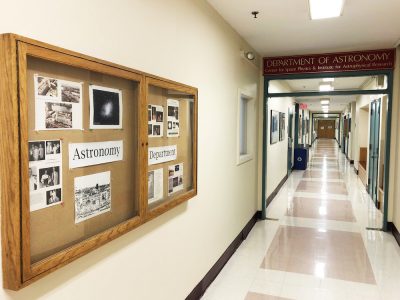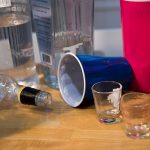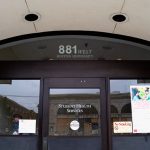
This week, NASA will launch its Transiting Exoplanet Survey Satellite (TESS), the mission of which, aided by a group of Boston University professors and students, is to locate Earth-like exoplanets.
Just under three years ago, Philip Muirhead, an astronomy professor at BU, was asked to assemble a team to identify nearby red dwarf stars for NASA’s latest satellite to orbit. His team was composed of undergraduate and graduate students, other professors, and astronomers from across the world.
TESS’s mission is to find 50 terrestrial Earth-like planets, as opposed to gas planets, around nearby red dwarf stars and sun-like stars, Muirhead said. NASA’s previous Kepler mission found many of these planets, but they were too far away to study in great detail.
“The goal here is to find planets that are more like Earth, Venus, Mars and Mercury,” Muirhead said. “… TESS is really a hunting mission.”
One way to find these planets is by looking near red dwarf stars. Seventy percent of the stars in the galaxy are red dwarf stars, Eunkyu Han, a member of Muirhead’s team, wrote in an email. They are smaller and fainter than other stars, so the change in brightness caused by an orbiting planet — called transit — is more prominent, and easier to detect.
Because red dwarf stars are cooler, their planets have tighter, faster orbits, so observers have more opportunities to witness the transit event, Han, a student in the Graduate School of Arts and Sciences, wrote. Observers need to witness transit three times before they can be confident they have detected a new planet.
Muirhead’s team’s mission was to find stars that were both small enough and close enough to Earth to examine in detail. They found over a million possible stars. In the end, NASA took 70,000 stars from their list to include in their survey. The planets TESS finds around these stars will be among the most studied exoplanets ever, Muirhead said.
A vital part of the process was differentiating red dwarves from red giants, Muirhead said. The team did this by employing the theory of proper motion, which states that closer objects appear to move faster than farther objects, to tell which stars were larger and farther away, and therefore not eligible for their study.
TESS was expected to launch Monday night, Han wrote, but the launch window was missed due to complications. The satellite launched successfully Wednesday afternoon from Cape Canaveral, Florida. Aerospace manufacturing business SpaceX was in charge of the launch.
Members of Muirhead’s team, including Han, will stay on with TESS and continue their roles after the launch, Muirhead said. The satellite will measure exoplanets’ radii while ground-based telescopes will be used to measure their masses.
Han wrote that she will be investigating the relationship between red dwarf stars’ masses, radii, luminosity and rotations.
“This relationship is critical for accurately measuring the radii and equilibrium temperatures of the hundreds of transiting extrasolar planets TESS is expected to discover,” Han wrote.
Muirhead’s research group has been studying red dwarf stars since he first came to BU, he said, but he has studied them even before that.
“My group is really interested in red dwarfs — not only the planets that orbit them, but also their intrinsic properties,” Muirhead said. “Why they have the size that they have, why they have the mass that they have, how they change over time.”
Because of this interest in red dwarfs, Muirhead was happy to accept when NASA asked for his help with the TESS mission.
“I’m not entirely sure why they asked me, but … I certainly said yes,” Muirhead said, “because this is a great opportunity, to be involved in what is currently the most important exoplanet mission.”




